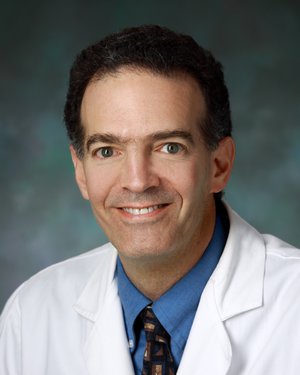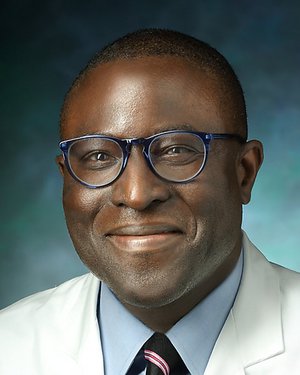AFib Treatment and Doctors at Johns Hopkins Medicine
Heart Care for Atrial Fibrillation in the Baltimore and Washington, D.C., metro areas.
Atrial fibrillation, or AFib, is the most common type of irregular heartbeat, and causes episodes of rapid heart rate. If you have AFib, your risk of stroke is five times greater, so it is extremely important to seek treatment. Experts at the Johns Hopkins Center for Arrhythmia and Electrophysiology provide comprehensive treatment, including medications, minimally invasive procedures and surgery.
Atrial Fibrillation (AFib) | Q&A with Dr. Hugh Calkins
Atrial Fibrillation Care at Johns Hopkins Medicine
Your treatment plan will be based on your unique health situation. Our team of cardiologists, electrophysiologists and cardiac surgeons works together to provide the best treatment approach. Our physicians and surgeons also gain insights from our researchers who are studying ways to improve care and find new procedures to help people with atrial fibrillation.
Your treatment and care will focus on:
- Reducing your risk of stroke
- Restoring a normal heart rhythm
- Identifying and treating underlying health problems that may contribute to AFib
AFib Treatments We Offer
The most important AFib treatment outcome is to lower your risk of stroke. Your care starts with a thorough evaluation to determine the best treatment plan for you. Therapy for AFib may include:
Medications
These include medicines to slow the heart rate, control the heart rhythm (antiarrhythmics) and prevent blood clots (anticoagulants or blood thinners).
Minimally Invasive Procedures
When medicines alone are not enough to control your AFib, your doctor may recommend procedures such as:
- Catheter ablation, a technique using radiofrequency waves or balloon-based cryoablation (freezing) to target the source of the irregular heartbeat.
- Cardioversion, a procedure performed while you are asleep to deliver a safe, controlled shock to the chest to restore your heart’s natural rhythm.
- Left atrial appendage occlusion, a technique to close a small windsock-shaped pouch in the left atrium of the heart, significantly reducing the risk of stroke caused by AFib.
Minimally invasive procedures such as these often provide a good result with a shorter recovery time than open-heart surgery.
Surgery
In some cases, you might require heart surgery such as surgical ablation. Our cardiac surgeons use the smallest possible incisions to address the problem with minimal visible scarring.

Caption: On the left, a normal heartbeat begins with an electrical impulse from the sinus node. On the right, with atrial fibrillation, electrical impulses fire rapidly from multiple sites, triggering 400 or more atrial contractions per minute.
Meet Our Team of AFib Doctors and Specialists
Our team of cardiologists, electrophysiologists and cardiac surgeons works together to provide the best care plan for you.
Johns Hopkins Arrhythmia Specialists
Featured Experts:
Featured Expert:
Our Locations
You can receive comprehensive services at several locations in the Baltimore and Washington, D.C., metro areas.
-
4940 Eastern Avenue
Baltimore, MD 21224 -
10755 Falls Road, Suite 360
Lutherville, MD 21093 -
4924 Campbell Boulevard, Suite 110
Baltimore, MD 21236 -
1132 Annapolis Road, Suite 104
Odenton, MD 21113 -
5755 Cedar Lane
Columbia, MD 21044 -
8600 Old Georgetown Road
Bethesda, MD 20814 -
5255 Loughboro Road, N.W.
Washington, D.C. 20016 -
601 N. Caroline Street, 7th floor
Baltimore, MD 21287





















